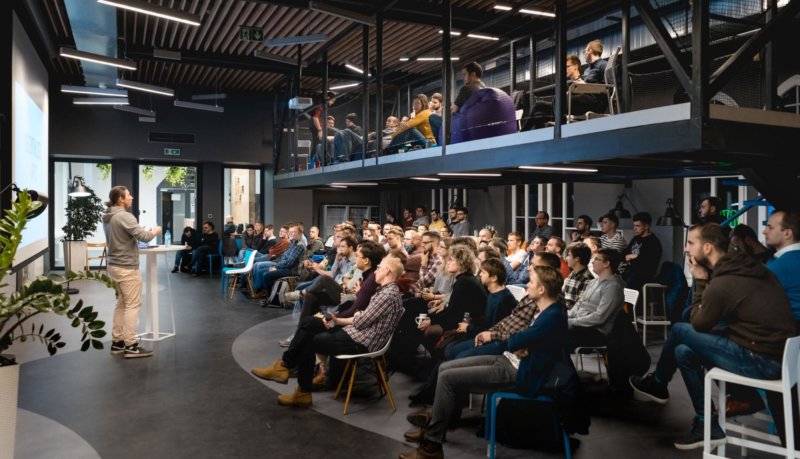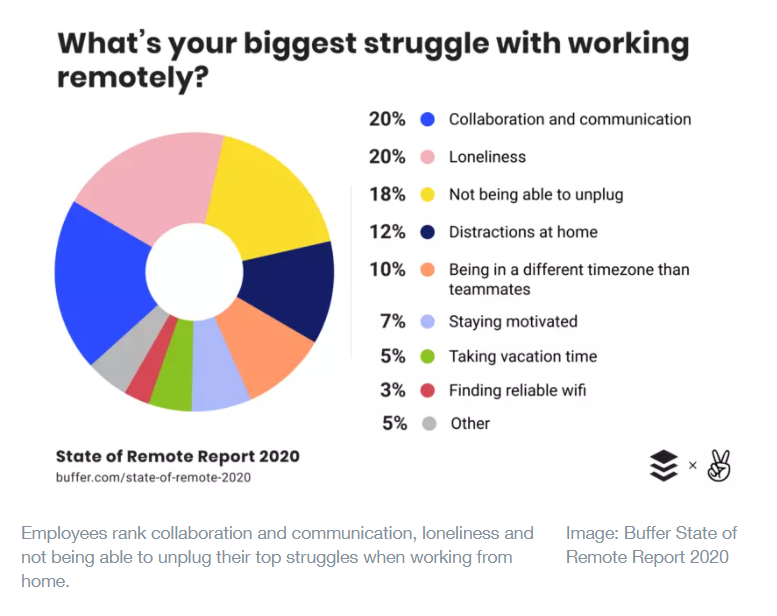03 November 2020
Software buying in a pandemic: 6 ways in which the industry is changing under COVID

Software development outsourcing has most definitely not escaped the impact of COVID 19. But the situation we found ourselves in is quite unique compared to many other industries. In this article, we’re taking a closer look at how COVID has already been influencing software purchasing during pandemic, what’s going on with outsourcing and how it will continue to do post-pandemic. And, of course, how you, as an entrepreneur, can interpret and benefit from these changes.
At this point, we are way past the need to explain what COVID is. We’re sure that you have heard more than enough about it on the news. As a matter of fact, the news seem to be all but dominated by it.
And you also have witnessed the impact it has on various industries first-hand – both as a professional and as a client when you try to order some food at a restaurant or go to the cinema. It’s not unthinkable that some industries may even lose this battle.
In many ways, software development outsourcing is not one of them. As a matter of fact, we have observed an increase in demand for IT services. It’s not surprising, considering how many companies view the online world as a place they can escape to with their business.
Nevertheless, COVID still has many implications for software development outsourcing and B2B relations involed in it. Not only has our service at the software development company changed but there are also new ways in which you, as an entrepreneur, can take advantage from working with remote software development vendors.
Before we get to that, let’s take a look at some data about COVID and technology and see if we can get some valuable information from it.
COVID pandemic vs software development outsourcing
With well over 44 million cases confirmed as of 30th October 2020, the COVID pandemic has become a global threat with many consequences. These related to software development outsourcing are, of course, but a fraction of them. However, they seem to be especially important – as being the driving force behind many trends that are now occurring. Trends that themselves are far from new, but the pressure to follow them has now reached a new level.
According to a report by ASG, 63 percent of respondents admitted that digital transformation priorities have significantly or somewhat increased in priority.
Why is that? And what challenges are companies and people behind them facing in their pursuit of digital transformation in the wake of the COVID 19 pandemic ? How is the sales process of outsourcing companies diffent? Do they modify the way their sales and marketing departments act in order to repond to this crisis? What about the buyers and the way they spend their money? An analysis of changes that software development outsourcing business is going through may just give us the answers.
1. More projects, fewer experienced developers
As we have mentioned, after an initial short period of uncertainty, we have noticed an increase in the number of companies interested in software development outsourcing. It’s obvious that in the times of social distancing with no end in sight, many businesses feel the need to reinvent their business model to stay afloat. But there is more to that.
It seems that the increasingly big interest in outsourcing might also be a result of changes in the war for talent on local IT markets. According to the survey by No Fluff Jobs, junior developers are now finding it more difficult to get and keep a job, as – in an effort to mitigate COVID – companies are rather looking for proven quality, i.e. senior developers. However, there are simply not enough of these experienced devs on the local markets.
An answer to this might be outsourcing. But what kind of outsourcing?
Read also: How to emerge victorious from the fight for IT talent?
2. Nearshoring, here we come!
Some experts believe that it is nearshoring, the practice of outsourcing software development to nearby countries, that may increase in popularity the most.
Due to the reasons mentioned above, companies might be more likely to make a decision to permanently outsource some or most of their development. A more sophisticated and informed approach to outsourcing will almost inevitably lead to nearshoring, as they search for companies the provide the most reliable solutions and technology.
Nearshored vendors are usually a good fit in terms of working culture, language as well as skills. A small time zone difference is also very important in the long-term.
In fact, it’s not really a new trend, as for example Nordic companies have been falling in love with outsourcing for quite a while now.
3. Last-minute projects, deadlines and… crunches
Abundance of projects is one thing. Another is the incredible pressure a lot of businesses face to respond to the unexpected circumstances as fast as possible. It results in many abrupt decisions to pivot their business model. What follows is new development full of ASAPs, deadlines and crunches.
But can an outsourced team deliver a project in an extremely short period of time without compromising quality? It does sound like a difficult task…
… but we have just finished a few software development projects in these exact circumstances.
Meet StageClip – a company that helps university and high school students create individualized graduation ceremony videos. With no perspective for onsite ceremonies, they decided to change their business model and create a web application for so-called online graduations. And they had to do it at a record pace.
See how we developed the new StageClip platform, what we learned and why the client was so satisfied with our contribution.
4. New way of building a relationship with the client
Our client acquisition process has always been strongly individualized and relationship-based. Once we established a relationship with the client, we worked towards making it last indefinitely. We focused on the possibly most wholesome approach. Every detail mattered: the quality of developers, the portfolio, client reviews.
In-person meetings were another crucial part of that strategy. Our clients could travel to Poland, meet with the team, see our awesome office and get the feel of what kind of company we are.

Now that we needed to move almost entirely online, we put more emphasis on strategies such as webinars, ebooks – to present our know-how online. We also completely refurbished the project planning phase.
Project planning is a series of meetings organized before the potential client makes the final decision. The idea of planning is to present the professional approach of The Software House to long-term cooperation. Therefore, project planning does not focus only on the functional scope of the project, but also on other important elements of cooperation, such as communication, security, application architecture.
The series of planning meetings end up with creating a document called a Project Plan, which holistically presents all the decisions made together about each stage of the project. This document is also an appendix to the later contract, which significantly speeds up the process of accepting the contract by both parties.
5. New challenges = new tools
As this is typically the case with software development, new challenges tend to entail new tools. And some categories of tools increased their customer base greatly, taking advante from increased demand for certain services. The COVID 19 crisis certainly had a big impact on these businesses.
In order to best communicate both with each other and with clients, we started to take advantage of collaborative video tools such as Zoom. We’re certainly not alone in this. According to information by BBC, the Zoom company revenues more than doubled in the months of second quarter of 2020, while customer growth rose by 458 percent compared to the same period last year.
Importance of other collaborative and productivity tools such as Slack or Rocket Chat have … skyrocketed as well – both in our everyday practice and according to industry data.
6. Remote work – no longer a developer’s privilege
Due to the nature of this industry, developers have always been a group with some of the highest rates of remote service. Software companies have always been among the most flexible when it comes to finding solutions for remote working. It’s true for the employees of The Software House as well.
But today, in the Coronavirus era, many developers are finding out that working remotely when you have to is very different than doing that when you want to. Extended remote work can cause stress and all sorts of problems. According to the information from the State of Remote 2020 research by Buffer employees struggle with many problems when working from home during the Coronavirus pandemic.

Therefore, it’s very important to mitigate these problems. At The Software House, we’ve already tried a few solutions and we can confirm that they can be of big help:
- encouraging employees not to use or even log into work-related tools outside of working hours or during vacation,
- organizing time for non-work-related activities, including games, coffee breaks for all team members to participate in etc.
- time-restricted sessions dedicated to very specific activities for improved productivity. For example, a designer would cease communication for two hours to focus entirely on the creative process. Or, during the refinement session, developers quit coding and focus solely on their JIRA tickets.
In a software company like ours, taking care of developers’ well-being is a crucial part of business strategy.
COVID vs software development outsourcing – summary
So, what do you think? There are definitely more things that may change during COVID and also in the months to come of the post pandemic software reality. Today, we focused on those that we can see first-hand in our own organization. Just to quickly sum it up, in terms of software development outsourcing the pandemic resulted in:
- more projects and more innovations,
- companies getting less and less afraid of buying outsourcing services, especially interested in the purchases of services from nearshoring vendors,
- a need to rethink the ways in which software companies attract clients, lots of the methods we used until now cannot be used in the current circumstances,
- remote work is pretty great for software developers but not without its fair share of problems,
- software development outsourcing has proved to be of great help when you have to move your business online or update your legacy software – and you have to do it fast.
Are you thinking about moving your business online or updating your software technology? Perhaps you are still not sure if your product, people and circumstances are a good fit for software outsourcing? Why don’t you contact us? Initial consultations at The Software House are free of charge. Also, keep with our blog as well as tech newsletters and social media activity to get all the news first and find out even more outsourcing in the new normal!
Are you trying to find an outsourcing partner that could meet your software needs in the pandemic-influenced reality?
TSH has already adapted to the new reality and continues to help companies achieve all their business objectives.


